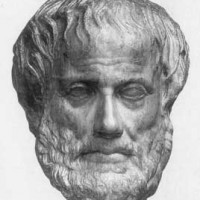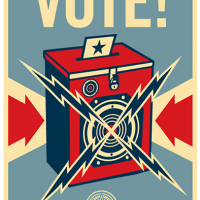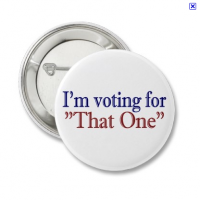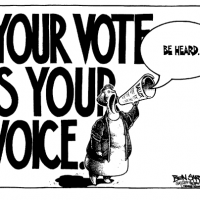You can hate Politics for what it has become and avoid it like a 10-foot pole. Or you can put purpose to it. One of these actions can change your life for the better. Which would you “vote” for?
An old Greek philosopher once said:
“Man is by nature a political animal.”
He even went on to write an extensive book called, well, “Politics”.

Aristotle figured if Man can reason and communicate with others, he probably could alter or change his living conditions for the better. Especially since he can recognize the difference from right or wrong.
Of course, he was working on an assumption: That a man with reason has to anchor his approach towards politics on the fundamental concept of good for human beings. An evaluation of modern politics, however, will tell us that Reality is far different from Theory.
“I Hate Politics.”
Politicians are often viewed as crooks. If they aren’t corrupted, they’re on the way there. And whatever project they propose is first to provide for their deep pockets. Everybody and everything else comes second.
In Malaysia, where Corruption is widely believed to be rampant, politics is a dirty game and a dreadful career. Politics seem to be about who thumps his or her chest loudest. And who can accuse the other of a sex scandal the fastest.
It appears to be a lot more to do with power grabbing and naked frolics in Videoland, and a lot less to do with problem solving.
Even the process of voting is encumbered with all sorts of evil tricks.
- Finding out you’ve already voted when you clearly remembered you were nowhere near a polling station in the years prior to that moment.
- Discovering that you’re now voting in a different constituency as electoral boundaries have been redrawn to favour a particular party.
- Spotting a mark next to your name on the list of voters when you turn up for voting. And getting that funny feeling that you’re about to be followed.
Even after you’ve managed to put in your ballot paper without incident, there’s no guarantee your desired candidate will win.
And even if the party of choice wins, there’s no guarantee that changes will happen.
So.
Why.
The.
Heck.
Should.
You.
Vote?
“But I Want to Be Heard.”
At the heart of things, voting is a civic duty of every citizen. If that sounds as boring as having to clean your room once a week, think of the people long ago who went through hail and hellfire to fight for political suffrage for all.
OK, you weren’t born then and you really don’t care. How about considering the idea of being told to shut up every time you ask for something?

“Can I have the keys to the car?”
“Shut up!”
“Can I play football with my friends after homework?”
“Shut up!”
“Can I have a salary because I’ve been working for you for free, for, like, 2 frigging years?”
“Shut. Up!”
Voting is like having a voice and being able to use it to effect a change that benefits you. So it’s really more than just a civic duty. It’s your chance to shape the country and the way it’s run so you can improve your living conditions.
If you believe that you can, long enough, it may just happen. If you think it’s just a waste of time, then it won’t. It’s possibility versus nothing.
So, if you’re one of the 4.4 million unregistered voters who think your vote won’t make a difference, mull over this thought:
If all 4.4 million of you think the same way, there won’t be any difference. Everything stays the same (if it doesn’t continue to go downhill). On the flipside, if all of you rush out to the post office over the next few days and sign up, a shift could happen.
The “could” changes to “would” if a sizeable number out of this figure votes for the right candidate at the next elections, someone who actually does more than stroke his Prada suit while dismissing rallies as a waste of time.
It’s all about critical mass.
It’s all about getting to the tipping point for change to happen.
“Now, How Do I Start the Avalanche?”
Well, ask yourself what it is that you and your friends need?
What is it that you and your community dislike about the status quo?
It is usually related to something important to you, like education. (Is it the low quality of your teachers? The syllabus?)
If you’re working, it could be to do with the salary scale at the establishment to which you’re attached. (No pay rise for 3 years?)
If you’re looking to purchase your first home, it could be the prohibitive entry costs. (Not enough affordable homes? Payment schemes that tie you down for 20 years?)
It could also be down to a simple basic need and right. Like being able to express yourself freely about the things you’re unhappy about. Even if it’s to do with the way the government is governing.
Voting is the chance to find a candidate who will take up your complaints, suggestions, and ideas and solve it at the Local Council stage or, if he’s an MP, bring it to Parliament for debate and for lawmaking.

It’s the chance to co-create policies, to help the government improve and govern better. [Think “Second Life”, that online game, only more exciting because this is real.]
Deciding not to vote is agreeing to have your future decided by a bunch of old folks who prefer that you listen more than give your opinions.
(Even if they do make plenty of sense.)
“Eh, How Long is this Ride?”
Change, of course, does not happen overnight. Hey, even your hair won’t turn all metallic and silky after one wash of that amazing follicle boosting shampoo promoted on TV.
The idea of continuously keeping your finger on the pulse of politics, and voting, is to produce enough momentum to drive your country closer to that dream state or nation you desire.
For the campaigner, it’s transforming enough onlookers into active, informed voters – year on year – to move the nation forward.
It’s:
A) Gathering and mobilising a community of like-minded voters who want similar things.
B) Educating voters like you on the backhanded mechanisms hatched by the incumbent party to halt fair elections in their tracks [so that nobody is disillusioned into thinking that any fight for good comes easy and fast].
C) Helping voters like you understand that every new government, state or federal, needs time to adjust, clean up, and create an office that is effective. Especially if the last one leaves with a plundered bank account and a host of unaccounted for purchases and bad deals.
D) Ensuring voters like you grasp the concept that state governments in Malaysia have control over management of religion, land, natural resources and water – but not much else. “Centralism” has meant that state governments are left with very little fiscal autonomy, with Putrajaya calling the shots on which state gets more grants for development. So, if your party of choice forms the state government and it isn’t the ruling party, proving you made the right choice can be a pretty tough battle in itself for the party you voted for. And yet, KNOWING this, there are things you could do about it.
“Good Things Come to Those Who Wait? Really?”
Most of us Malaysians would consider queuing up for really good Nasi Lemak, Banana Leaf Rice and Chicken Rice. Would we wait for a cleaner, less corrupted government? Better schools? The arbitrary oppressive laws like ISA and Official Secrets Act to be chucked out of our psyche forever? Shouldn’t we wait for lasting “treasures” as opposed to stuff that won’t stand the test of time? Shouldn’t we reserve some of our energies to shape our future instead of just focusing on the present?

To summarise, it all comes back down to the “U” in the whole equation of things. The YOU.
Be invested in politics because they affect U and they provide the information U need for the elections.
Be investigative and know who your local and Members of Parliament are because U will be making them accountable for your affairs.
Be a voter because U are the rakyat and U have a say in the way the country is run.
Because, as Aristotle says, U know what is right and wrong and with that knowledge, U can change your living conditions for the better.
Lisa Ng is a human being. She used to be a copywriter in the advertising industry. But now she just writes. For whatever helps us regain the lost art of “giving a toss” towards things that matter to the human race.

Hi Goh,
Thanks for your view. I can see where you're coming from. But hear me out. I think by 'civic duty' I mean that citizens are accountable for the governance of a country due to the fact that every single one is given that opportunity to vote. So in a sense, it is a duty. If you take into context that at least 3/4 of us complain about the country (i.e how it's run), then all the more voting takes on a civic duty role because hey, if we have crap for leaders, we're responsible for voting the crap in (or if we didn't vote, responsible for allowing crap to get in). :)
nice article! but i don't agree that voting is a civic duty. Paying tax is a civic duty. If I don't pay, then I'm a real shitty Malaysian. A right to vote means I have the right NOT to vote, regardless of whether I'm political invested or not. Besides, if you wanna see a shift, pass a law that requires 4.4 million unregistered voters to do a good deed on voting day, that'd do more good to the country than political mudslinging. ;) you're cute btw
Hey Nijam, please spread this article to any young people you may know. Just want them to know they have the power to change things. And to understand the big picture. :)
Brilliant!!